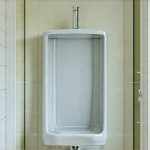The human body is an astonishingly interconnected system, where emotional states frequently manifest as physical sensations. We readily acknowledge the ‘gut feeling’ associated with anxiety, or how stress can lead to muscle tension. Less commonly understood, however, is the intricate relationship between rapidly shifting moods and our urinary urges. The sudden need to urinate – or conversely, a temporary suppression of that urge – can be surprisingly linked to emotional fluctuations, creating a phenomenon many experience but rarely discuss. This isn’t necessarily indicative of a medical problem; rather, it highlights the powerful mind-body connection we all possess and how deeply our internal experiences are interwoven.
Understanding this link requires recognizing that bladder control isn’t solely a physiological process governed by hormones and muscle function. It’s heavily influenced by the nervous system, which is profoundly affected by emotional states. When experiencing strong emotions – joy, fear, anxiety, sadness – the brain triggers a cascade of neurological responses impacting various bodily functions, including those relating to the urinary system. These fluctuations can alter bladder capacity perception, sphincter control and even the sensation of needing to void. This article will explore the ways in which rapid mood shifts can influence bathroom urges, delving into the underlying mechanisms and offering insights for navigating this often-unacknowledged aspect of human physiology.
The Neurological Pathways Involved
The brain is the central command center regulating bladder function. It’s not simply a matter of the bladder filling up and triggering an automatic response. Instead, there’s a complex interplay between higher cognitive functions – emotions included – and lower-level autonomic processes that govern urination. Specifically, several key neurological pathways are involved. The parasympathetic nervous system, often called the “rest and digest” system, is primarily responsible for bladder storage and emptying. Conversely, the sympathetic nervous system, activated during “fight or flight” responses, tends to inhibit bladder function – contributing to a temporary suppression of urges when feeling anxious or fearful.
Emotional states directly impact these systems. For example, feelings of anxiety can activate the sympathetic nervous system, leading to increased heart rate, heightened alertness, and potentially, delayed urination. Conversely, relaxation associated with positive emotions typically activates the parasympathetic nervous system, which can promote bladder emptying. The prefrontal cortex, responsible for higher-order thinking and emotional regulation, also plays a role. It modulates signals sent to the brainstem, where basic urinary functions are controlled. Rapid shifts in mood effectively cause rapid changes within these neural networks, explaining why bathroom urges can fluctuate so dramatically alongside our emotions.
Furthermore, the limbic system – encompassing structures like the amygdala and hippocampus – is critical for processing emotions and associating them with bodily sensations. This means emotional memories or anticipatory anxiety (like before a stressful event) can trigger physiological responses, including changes in bladder function even before the actual stressor occurs. It’s why some people experience increased bathroom urges when thinking about situations that evoke strong emotions. If you suspect hidden gut issues revealed might be playing a role, advanced diagnostics can help.
The Role of Stress and Anxiety
Stress is arguably the most common emotional state impacting urinary habits. When we perceive a threat – whether real or imagined – our bodies initiate the stress response, releasing hormones like cortisol and adrenaline. These hormones have multiple effects on the urinary system.
– They can cause blood vessels to constrict, reducing blood flow to the kidneys and potentially altering urine production.
– Simultaneously, they can increase bladder capacity by relaxing the detrusor muscle (the muscle that contracts to empty the bladder).
– This combination often leads to a temporary suppression of urge sensations.
However, chronic stress or acute anxiety can have paradoxical effects. Prolonged activation of the sympathetic nervous system can lead to increased urinary frequency and urgency in some individuals. This is thought to be due to several factors including muscle tension around the bladder and pelvic floor, changes in kidney function, and heightened sensory awareness. Anxiety often manifests as physical symptoms, and the sensation of needing to urinate can become a focal point for anxious energy.
It’s also important to recognize that anticipatory anxiety – worrying about potential situations where bathroom access might be limited – can significantly exacerbate these effects. This is why people sometimes experience increased urgency before public speaking engagements or long car rides. The brain anticipates the stressful situation and initiates physiological responses in advance, leading to heightened bladder sensitivity. Managing stress through techniques like deep breathing exercises, mindfulness meditation, or regular physical activity can therefore be a valuable strategy for regulating both emotional state and urinary function. Understanding gerd and sudden mood shifts can also provide insight into the mind-body connection.
How Joyful Emotions Can Influence Urges
While stress is often associated with altered bathroom habits, positive emotions can also play a significant role, albeit in different ways. Intense joy, excitement, or even laughter can sometimes trigger an immediate need to urinate. This isn’t necessarily a sign of weakness or loss of control; it’s another manifestation of the mind-body connection.
Laughter, for example, involves forceful contractions of abdominal muscles which directly impact the bladder and urethra. These contractions can create pressure on the bladder, leading to an urge to void. Similarly, feelings of intense joy or excitement often involve increased energy levels and a sense of release, potentially stimulating the parasympathetic nervous system and promoting bladder emptying.
Furthermore, positive emotions are associated with decreased cortisol levels and improved overall well-being, which can positively influence bladder function. When we feel relaxed and content, our bodies are better able to regulate physiological processes efficiently. Conversely, negative emotions disrupt these processes, leading to instability. It’s crucial to remember that both ends of the emotional spectrum can impact bathroom urges, emphasizing the dynamic relationship between mind and body. Bloat-free food combinations may also reduce overall stress on your system.
The Impact of Sudden Mood Swings
Rapid mood swings – characterized by quick transitions between joy, sadness, anger, or anxiety – can create particularly noticeable fluctuations in urinary habits. This is because each shift in emotional state triggers a corresponding change in neurological activity, impacting bladder control. Imagine experiencing a sudden burst of happiness followed immediately by a wave of worry; the nervous system rapidly switches from parasympathetic to sympathetic dominance and back again.
This constant shifting can disrupt the delicate balance required for stable bladder function. – It may lead to unpredictable urges, alternating between frequent urination and difficulty voiding. – Some individuals might experience a sensation of incomplete emptying or a persistent feeling of needing to “go” even after they’ve just urinated. – The unpredictability itself can contribute to anxiety, creating a vicious cycle where emotional distress exacerbates urinary symptoms.
Individuals with underlying conditions like interstitial cystitis or overactive bladder may be particularly sensitive to these fluctuations. In such cases, emotional stress can significantly amplify symptoms and worsen quality of life. Recognizing the link between mood swings and bathroom urges is the first step towards managing this complex interplay. Developing coping mechanisms for emotional regulation – such as journaling, therapy, or mindfulness practices – can help stabilize both emotional state and urinary function. If you’ve experienced rapid weight loss, it’s worth investigating potential underlying digestive issues.
It’s important to reiterate that experiencing a connection between mood and bladder urges is normal. However, if these fluctuations are causing significant distress, interfering with daily activities, or accompanied by other concerning symptoms (like pain, blood in urine, or fever), it’s essential to consult a healthcare professional to rule out any underlying medical conditions. Can shifts in gut pH also contribute to discomfort and may exacerbate these issues. Additionally, understanding which tests are covered by insurance can help you seek necessary diagnostics without financial worry. This article provides general information and should not be considered medical advice.


















